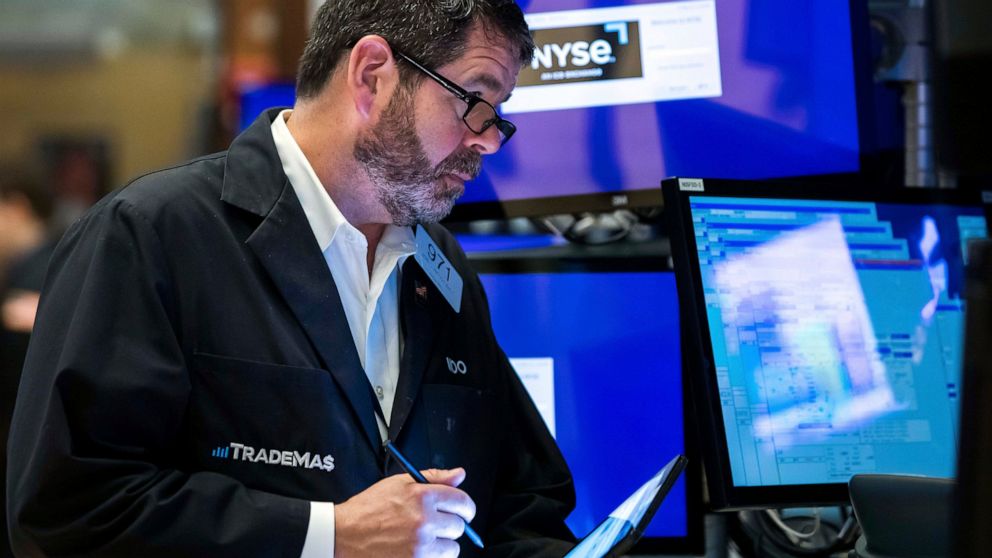Stocks edge higher on Wall Street after 6 weeks of declines
Stocks edged higher on Wall Street Monday, but trading remains choppy as the market comes off six straight weeks of declines
NEW YORK — Stocks edged higher on Wall Street Monday, but trading remains choppy as the market comes off six straight weeks of declines.
The S&P 500 was up 0.3% as of 2:49 p.m. Eastern. The Dow Jones Industrial Average rose 222 points, or 0.7%, to 32,419 and the Nasdaq fell 0.3%.
Energy stocks and health care companies gained ground. Chevron rose 4.1% and Eli Lilly rose 3.1%.
Retailers had some of the biggest losses and tempered gains elsewhere. Amazon slipped 1% and Starbucks fell 3.1%.
Technology stocks have been pushing and pulling the broader market throughout most of the day and were mixed by late afternoon. Big tech companies, with their pricey values, tend to push the broader market both up or down. The sector has been a particularly heavy weight as investors worry about high inflation and rising interest rates.
Bond yields fell. The yield on the 10-year Treasury fell to 2.88% from 2.94% late Friday.
Spirit Airlines rose 13.3% after JetBlue said it would make a hostile offer for the budget carrier after Spirit rebuffed its earlier bids.
Defense contractor ManTech jumped 15.2% after investment firm Carlyle Group said it will buy the defense contractor.
The broader market is in the midst of a slump as investors try to gauge how companies and consumers are dealing with higher prices and whether central banks can help ease the problem.
“Time is the most important factor here,” said Mark Hackett, chief of investment research at Nationwide. “Right now sentiment and emotion is winning but eventually the reality of a fundamentally good backdrop will take over.”
Corporate earnings have been mostly good, he said, and consumer spending is holding up in the face of inflation pressure. But, the market will likely remain volatile and could experience more losses until some of the worries over inflation lessen.
The Federal Reserve is in the process of pulling its benchmark short-term interest rate off its record low near zero, where it spent most of the pandemic. It also said it may continue to raise rates by double the usual amount at upcoming meetings. Investors are concerned that the central bank could cause a recession if it raises rates too high or too quickly.
Lingering supply chain problems continue to feed inflation, and China’s recent COVID-19 lockdowns have raised concerns that they may worsen. Russia’s war against Ukraine has made already high energy prices even more volatile, which could also draw out rising inflation.
U.S. crude oil prices rose 2.9% Monday and are up more than 50% for the year. Natural gas prices rose 3.9% and have more than doubled in 2022.
Wall Street is closely watching how consumers react to pressure from inflation and will get several updates from the U.S. government and key retailers this week. The Commerce Department on Tuesday will release its retail sales report for April.
Home Depot and Walmart will report their latest financial results on Tuesday and Target will report its results on Wednesday.
![]()


